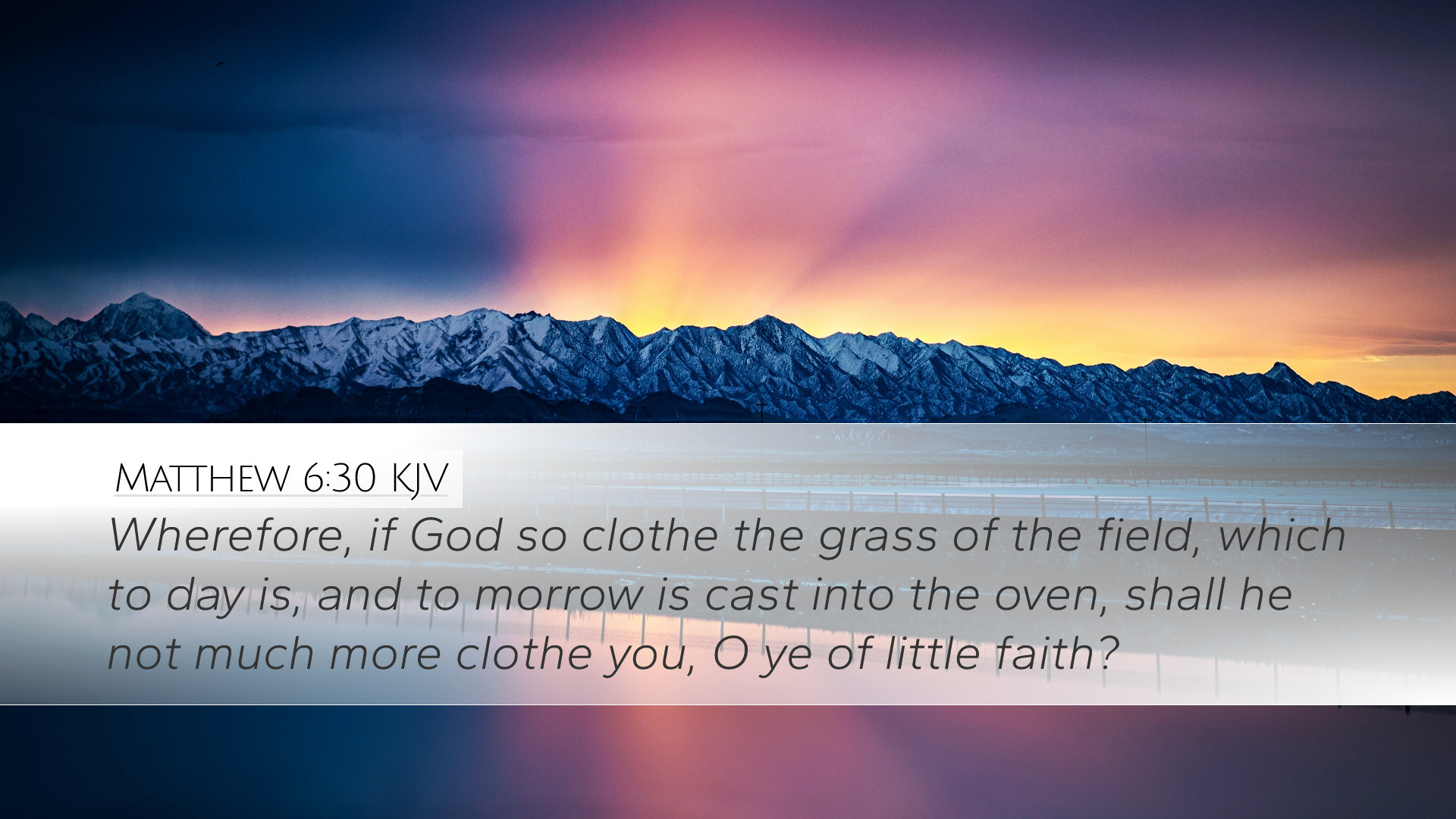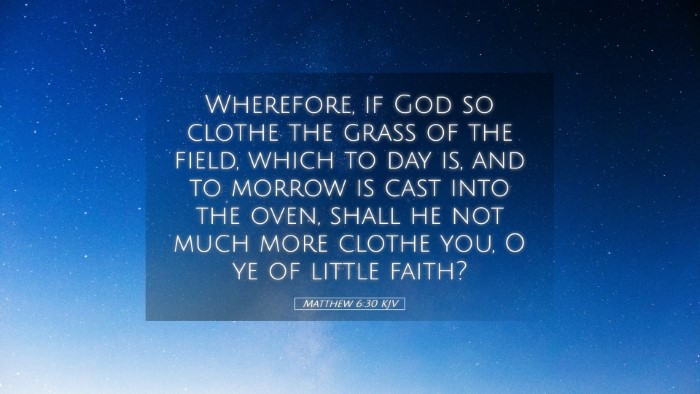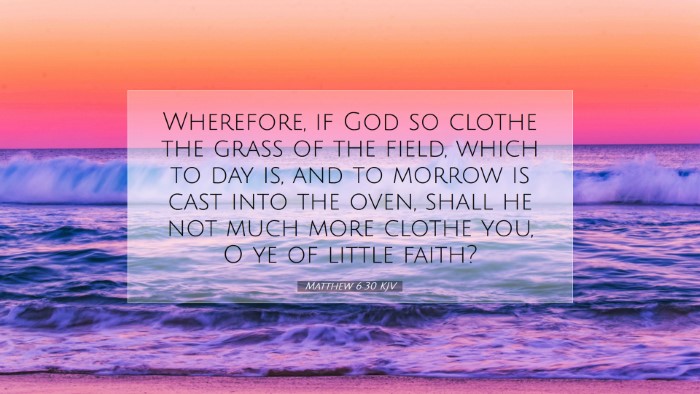Commentary on Matthew 6:30
"Wherefore, if God so clothe the grass of the field, which to day is, and to morrow is cast into the oven, shall he not much more clothe you, O ye of little faith?"
Introduction
This verse is part of Jesus' Sermon on the Mount, wherein He teaches the crowds about divine provision and the importance of faith. In this context, Jesus emphasizes God's care for creation and how it reflects His concern for humanity.
Context and Background
In Matthew 6, Jesus contrasts material concerns with spiritual priorities. He encourages His followers to trust in God for their needs rather than succumbing to anxiety over worldly possessions. The verse in question serves as a potent reminder of God's providential care and the futility of worry.
Exegesis
The Grass of the Field: The reference to the grass illustrates the transient nature of earthly life. Grass is here today and gone tomorrow, yet God adorns it beautifully. This imagery serves to elevate our understanding of God's creative power and His attentiveness to even the smallest details of His creation.
Shall He Not Much More: This rhetorical question emphasizes God's greater care for humanity compared to the grass. If God provides for the temporary, how much more will He provide for those made in His image? This reflects the inherent value of human beings in God’s eyes.
Theological Implications
- Divine Providence: The verse underscores the doctrine of providence, emphasizing that God is actively involved in His creation.
- Faith: Jesus addresses those with 'little faith,' highlighting that trust in God should replace anxiety about daily needs.
- Value of Humanity: The text reinforces the idea that humans, being created in the image of God, are invaluable to Him.
Insights from Public Domain Commentaries
Matthew Henry
Henry emphasizes that believers should not obsess over material concerns. He draws attention to the care God extends even to the grass and wildflowers, which speaks volumes about His commitment to humanity. He admonishes against little faith, suggesting that such doubt reflects a lack of understanding of God’s loving character.
Albert Barnes
Barnes points out that the temporal nature of grass serves as a reminder of human mortality. He elaborates on God's provision for even the least of creation and concludes that believers should adopt an attitude of trust, liberated from worry. Barnes reiterates that God's care transcends human understanding and that His providence is trustworthy.
Adam Clarke
Clarke highlights the extraordinary beauty of nature, citing that if God lavishes such care on fleeting plants, His care for humankind is surpassing. He suggests that the mention of 'little faith' calls believers to cultivate trust and assures them that lacking faith often leads to unnecessary anxiety.
Application for Pastors, Students, and Theologians
This verse and its surrounding context provide rich material for teaching on divine providence. Pastors can encourage congregations to cultivate trust in God's provision rather than succumbing to fear and anxiety. Students and theologians may explore the implications of how faith impacts our understanding of God's care and how this informs Christian ethics and community living.
Conclusion
Matthew 6:30 serves as a profound reminder of God's unwavering care for creation and His greater concern for humanity. It challenges believers to place their faith firmly in God's promises, thereby exemplifying the values of trust and reliance that are core to the Christian faith.
As we reflect on the beauty of nature and the care with which God provides for it, may we also be inspired to live with faith and assurance that God knows our needs and meets them according to His riches in glory.


